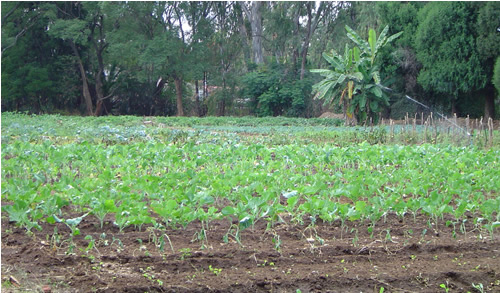Virtually every corner of Zimbabwe has huge challenges concerning access to clean water, and despite all talk about the country committing itself to meeting its MDG targets with 2015 fast approaching, it is quite a statement to hear a woman ask the Harare mayor, “can you tell us if the water in our taps is safe to drink!”
The UN says you cannot separate water from all the Millennium Development Goals, it thus has to be asked that in a country where water has become such a very emotional issue because of its regular absence in our taps, what then does this say about the country meeting all the eight MDGs?
But then, this question is rhetorical as it is on record that we are off the mark on many of these fronts.
I was given a jolt, recalling that water treatment chemicals have been hard to come by for big cities such as Bulawayo, and for someone to pose that question, “can you tell us if the water in our taps is safe to drink?” says a lot about the downward spiral of service provision in this country in the past decade.
The occasion was a Quill Speak at the Ambassador Hotel and it was themed “The water supply crisis in Harare – what is the solution?”
The Harare mayor, 59 months on the job he said, attempted to provide insights into the mother city’s water headaches, but like many public officials in this country never seemed to have anything new to say other than what has become a well-worn motif: we don’t have the money.
Someone asked where then the mayor expects to get the money, and it was then that for me he provided a useful insight about what has gone wrong in this once romanticized “great African hope” back in the euphoria of 1980.
Council could raise funds for its service provision obligations such as the ever-snowballing water sector migraines by issuing municipal bonds, but this last happened in the 1990s before the dollar crashed in 1997, the mayor explained.
It is explained elsewhere “municipal bonds are securities that are issued for the purpose of financing the infrastructure needs of the issuing municipality.”
But in a country where everything has been blamed on the voodoo economics of Zanu PF, municipal bonds also became a victim; simply meaning that local authorities could not sustain themselves, raise their own revenue outside payment of bills by residents.
Yet resident associations have criticized these municipalities of trying to run their cities with money collected from bills, which is an impossible proposition.
It explains why virtually every council in this country is broke, with residents being forced to live with the reality of disease outbreak right on their door steps.
We only have the 2008 cholera outbreak as a painful example, which Sikhanyiso Ndlovu claimed back then and without any hint of tongue-in-cheek was part of a biological-chemical warfare unleashed by Zimbabwe’s enemies, when everyone else knew its genesis.
Another lady asked the Mayor why she should bother paying her bills when she hardly gets any water, a question that has been asked everywhere but has not elicited any convincing response from the local authorities.
It is a telling indictment that amidst all these questions, Zimbabweans find themselves being part of the 783 million people UN Water says do not have access to safe drinking water, and these are people living not in the rural outback, but in the city of Harare!










